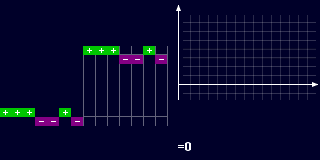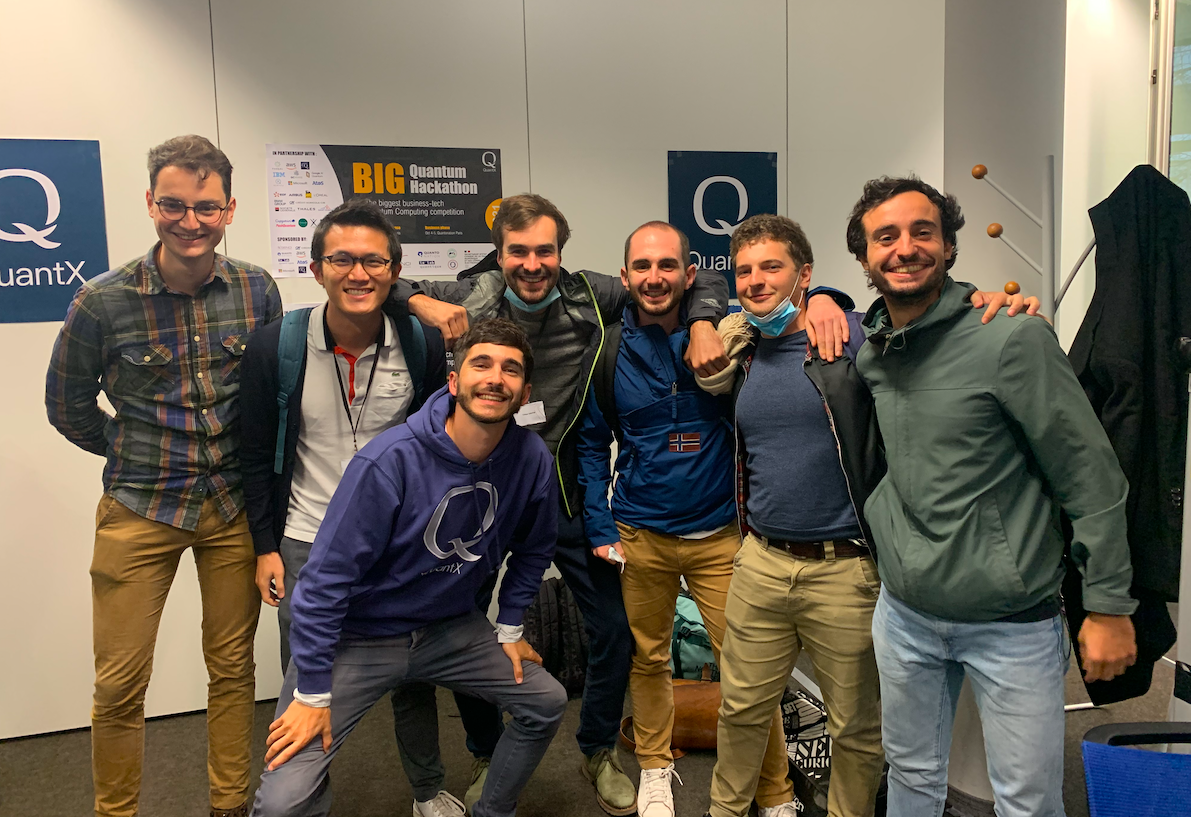BIG Quantum Hackaton
I had the chance to spend 4 days at the BIG Quantum Hackaton organized in Paris from October 2nd to October 5th 2021 by QuantX, the alumni association from Ecole Polytechnique on quantum physics. Two days were dedicated to a technical phase, from which 5 projects out of 10 were selected to continue in a business phase.
Les Atomes de Savoie team which I was a part of had to work on waveform optimization using quantum circuit, a problem proposed by Thales to enhance the resolution of their radars. Phase modulation is used on an electromagnetic wave by dividing it in \(N\) chunks in order to precisely measure the time of the reflection. Having a larger number of chunks increases the accuracy of the radar so the higher the \(N\), the better. Finding the waveform for a given \(N\) is a complex combinatorial problem where for large \(N\) the space of configurations can be huge.

Quantum reformulation of the problem allowed us to use Quantum Approximate Optimization Algorithm (QAOA) to tackle this problem and find optimal configurations. The algorithm was not nearly as robust and fast as classical algorithms but the task of reformulating the problem in a quantum framework alone is an interesting exercice. The power coming from the \(2^n\) vector space spanned by \(n\) qubits is always promising for such a large space of possible configurations.
The benefits of quantum computing are not yet understood in every field and this is why so many companies like BMW or Thales invest it although the return on investment is far from being immediate. Lots of things are not settled in quantum computing but the most pressing issue seems to be qubit reliability. Many algorithms are ready for deployment but the hardware is not here yet.


Finishing second at the end of the technical phase, Tristan and I went on to help the business team (Les Fonds du Savoyard) assigned to our case understand the new technical possibilities that could be achieved by solving our initial problem. Seeing how technical improvement can be monetized and pitched was a great experience from a PhD student point of view, opening my eyes on the business side of things. Pitching a satellite company project called QubitSat to leverage the increased accuracy that quantum computing could achieve, the business team also finished second!
Quantum computing is only at an early stage but the energy and excitement are there! The scope of things to do is limitless and I am rather confident in the fact that quantum computing will change our lives in the coming decades.